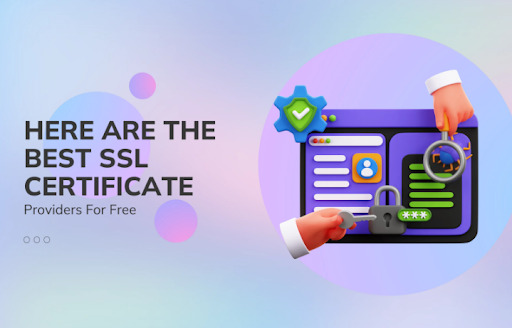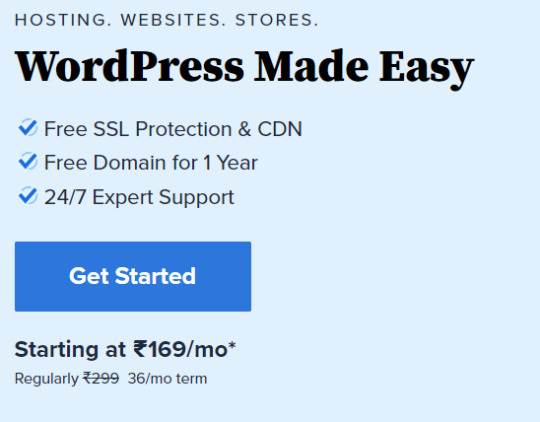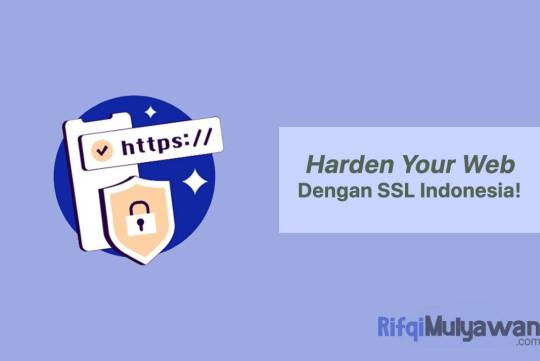#SSL certificate for Website Security
Explore tagged Tumblr posts
Text
Here are the best SSL certificate providers for free | Liveblack

Website security is always a subject of concern to all website owners. If your site isn’t protected, visitors won’t mind ignoring your site. For security and the betterment of your website, you need an SSL certificate. SSL (Secure Sockets Layer) keeps all sensitive information secure. Its security protocol creates a safe encrypted link between web browsers and servers.
Why is it necessary to get an SSL certificate for your website?
Your website is more than showing off how creative you are with your designs and content or how many products and services you offer your customers or visitors. It is also about the data the customers share, and their private information should not fall into the wrong hands. Your customers or visitors of the website expect your site to be secured with appropriate security measures. Without a secure connection, your website and customer data risk getting hacked. All in all, your website should be protected with SSL, whether it’s about financial operations you do on your website or its customer data security.
Web browsers like Chrome and others notify people visiting your website about not visiting the site as it is not secure for them to use. So it’s better to have an SSL certificate to protect everything that your site has from your sensitive information to the customer’s data, to protect privacy.
Securing your website with an extra coating of protection is mandatory. There are free SSL certificate providers. Free SSL provider gives certificates that will encrypt the data and provide security for online communication between a web browser and a web server.
There are mainly three types of SSL certificates — DV (Domain Validation), OV (Organization Validation), and EV (Extended Validation).
If you are looking for the best free SSL certificate providers, check out our detailed blog to choose the best one.
1 — Let’s Encrypt
Let’s Encrypt is a renowned SSL Provider operated by a non-profit organization named Internet Security Research Group (ISRG). They offer free SSL certificates that are easy to acquire, manage, and renew, with the mission to create a more secure and protected web. You can easily apply for SSL certificates if you have a domain name.
One of the main advantages of having Let’s Encrypt is it allows you to create Wildcard and Subject Alternative Name (SAN) certificates. You can install Let’s Encrypt from your web hosting provider. However, if your web hosting provider doesn’t provide you with a Let’s Encrypt SSL certificate, you can install it manually by following the guidelines on how to install it.
Each certificate issued by Let’s Encrypt becomes public as it is online for anyone to check out. That’s how they display their transparency. If you have many websites, generating Wildcard and SAN certificates makes it easy to create SSL certificates without installing them for a separate domain or subdomain.
Let’s Interact is a reliable option to install SSL certificates to provide security and protection to your website and the people who are your customers or visitors.
2 — SSL for Free
Anyone can quickly create SSL certificates from SSL for Free, as the name says so, and follow the thing. It unquestionably provides free SSLs and works on all significant browsers. SSL for Free offers 90-day certification; afterward, you must manually renew certificates. But don’t worry about a manual process as it is easy to work on, and spending a few minutes every three months doesn’t take much time.
Build trust among your customers and website visitors by having SSL for Free. Protect every piece of information you have, and improve site ranking, and it’s 100% free to generate SSLs. Over three million free SSL certificates have been generated and counting.
3 — GoDaddy
GoDaddy is a name everyone has heard of somewhere, and it is the best SSL provider, providing free and paid SSLs. GoDaddy doesn’t just offer SSL certificates, but it can also provide many other services like web hosting, professional email, web design services, SSL security, domain registration, etc. The SSLs provided by GoDaddy are compatible with every leading browser and give 24*7 support.
You must know about GoDaddy that they don’t provide SSLs for free. You will get an SSL certificate for free by purchasing other services. It depends on what package you are buying, and according to that, you’ll benefit from having SSL free for how much time.
Whether you own a single website or more than one website, GoDaddy will be there to protect you from unwanted and unexpected harm.
4 — GoGetSSL
Another highly trusted name in the list of free SSL providers, GoGetSSL, quickly avail SSL certificates for you. For SSL certificates, it gives a 90-day free trial. It takes only about 5 minutes to get domain validation (DV) SSLs, for which they don’t demand any paperwork, callback, or anything—an easy and quick way to be secured.
Technically speaking, GoGetSSL doesn’t provide SSLs free, they have a 90-day free trial in which you can try and test, and they have a 30-day money-back guarantee. If you are unsatisfied with the SSLs, they fully refund the money within 30 days.
Do you know any SSL certificate providers with a better price? Because GoGetSSL will match the price with other providers. Get the best possible price with them to save your money.
5 — Bluehost
Bluehost is one of the best and most popular free SSL certificate providers, providing services at an affordable price. Signing up for any hosting plan with it will provide you with free SSL certificates. Do you want your first website to go online? Consider buying any hosting plan from Bluehost. You’ll get a free domain name for the first year, a perfect all-in-one package.
If you want to switch web hosts, Bluehost is an ideal choice. Enjoy the best website hosting benefits with Bluehost and have an amazing and secure website. By choosing Bluehost, you select the best for your site, as it makes it easy to renew SSLs and enable them.
Whether you are looking for free SSL certificate providers or any services related to digital marketing, we will help you with everything. At Liveblack, you’ll find productive solutions that inspire people to know more about your brand or business, grab people’s attention through inventive social media posts and creatives, let your website stand out, and level up your marketing with us.
#SSL certificate#free SSL certificate providers#SSL (Secure Sockets Layer)#best free SSL certificate providers#SSL Security#SSL certificate for Website Security
0 notes
Text
Bluehost Review 2023: Is it Still the Best Web Host for Your Website?
Are you looking for a reliable web hosting provider for your website?
Look no further than Bluehost, one of the most popular web hosting providers in the market. In this Bluehost review, we'll take a closer look at Bluehost and its features to help you decide if it's the right choice for your website.

What is Bluehost?
Bluehost is a web hosting company that was founded in 2003. It's based in Utah, USA, and is owned by Endurance International Group, a company that also owns other popular web hosting providers such as HostGator and iPage. Bluehost offers a variety of hosting plans, including shared hosting, VPS hosting, dedicated hosting, and WordPress hosting.
Why choose Bluehost?
There are many reasons why Bluehost is a popular choice among website owners.
Here are some of the key benefits of using Bluehost: Reliability: Bluehost guarantees an uptime of 99.9%, which means your website will be available to your visitors almost all the time. Speed: Bluehost uses SSD drives and Cloudflare integration to ensure fast page loading times.
Security: Bluehost offers free SSL certificates and has various security measures in place to protect your website from malware and hackers.
Ease of use: Bluehost's control panel is user-friendly and easy to navigate, even for beginners. Customer support: Bluehost provides 24/7 customer support via live chat, phone, and email.
Bluehost Pricing
Bluehost's pricing is competitive and affordable, making it accessible to small business owners and individuals.
Here are the pricing plans for Bluehost shared hosting:
Basic: $2.95 per month (renews at $7.99 per month)
Plus: $5.45 per month (renews at $10.99 per month) Choice Plus: $5.45 per month (renews at $14.99 per month)
Pro: $13.95 per month (renews at $23.99 per month) All plans come with a free domain for the first year, unmetered bandwidth, and a free SSL certificate.
Bluehost Features
Bluehost offers a range of features to help you build and manage your website.
Here are some of the key features:
One-click WordPress installation: Bluehost makes it easy to install WordPress with just one click. Website builder: Bluehost has a drag-and-drop website builder that allows you to create a website without any coding knowledge.
Domain manager: Bluehost allows you to manage your domain settings and DNS records from one place. Email hosting: Bluehost provides email hosting services, allowing you to create custom email addresses using your domain name.
eCommerce tools: Bluehost offers integrations with eCommerce platforms such as WooCommerce and Shopify, making it easy to start an online store.
Bluehost Review Summary
Bluehost is a reliable and affordable web hosting provider that offers a range of features to help you build and manage your website. It's an excellent choice for small business owners and individuals who are looking for a user-friendly web hosting provider with excellent customer support.
If you are in need of a good hosting provider, Bluehost is definitely worth considering. It is a perfect choice for beginners as well as experienced users who require reliability, speed, and security.
Finally, if you want to learn more about web technology, web design, and gaming, check out WebTechTips.co.uk. They have an extensive collection of articles, guides, and tutorials on these topics.
Get started with Bluehost today and take the first step towards a fast and reliable website. Fill out the form above to sign up now!
#Web hosting#Website builder#Domain name#Shared hosting#WordPress hosting#VPS hosting#Dedicated hosting#Cloud hosting#Website management#Email hosting#E-commerce hosting#Website security#SSL certificates#Site backups#Customer support#Control panel#Domain registration#Website migration#Performance optimization#Server uptime#Marketing tools#Affiliate program#Pricing plans#Website templates
3 notes
·
View notes
Text
Why is SSL Important? Learn All About SSL Certificates & Why To Invest In It

You may rest assured that your personal information is safe because an SSL certificate is the foundation of our secure Internet. Even if your website does not handle critical data such as credit cards, you still need SSL to keep it secure. It protects both your websites and the personal information of your visitors with vital security and data integrity.
What Exactly Does SSL Mean?
SSL is Secure Sockets Layer. When a web server and browser use the SSL protocol, an encrypted connection is established between the two. Authentication of the encrypted connection and verification of the website’s owner is the primary functions of an SSL certificate. Because an SSL certificate verifies the domain’s ownership and security, firms that handle sensitive information can rely on it as a sign of trust.
SSL: Why You Need It for Your Website
1. SEO Rankings Boost
Investing in an SSL certificate is a great way to increase your website’s search engine rankings. That’s right: Google’s ranking system takes SSL into account in an effort to make the internet a safer place. It’s possible that your site won’t rank as well as your competitors if SSL isn’t enabled on it. Let those organic visitors go through the cracks if you can.
If you don’t have SSL, you’re already behind a lot of other sites in the industry. According to Moz, SSL is currently enabled on 32.5% of Google’s first page results. So if you want to reach the top of the search results, SSL can help.
2. User Trust
There has been a lot of talk lately about cyber attacks and site security, especially in light of the recent DDOS attack. Consumers will be wary of where they put their personal information and which websites they visit after hearing about the recent cyberattacks that crippled the likes of Twitter, Amazon, Spotify, Netflix, and others.
If you’re a user who’s been seeing these sites go down for a few hours, I hope it makes you reevaluate how much faith you place in these companies. That brings me to my second reason: the belief that I can rely on others. Every one of us has a favourite news source, blog, or shopping site. However, have you checked to determine if these sites are secure? Google has made it easy to tell if a website is secure or not.
You’ll find the relevant information to the left of the URL. You can use this at the beginning of the URL as a guide. A green lock next to ‘HTTPS’ and an information circle for sites that are not SSL-enabled have been added by Google as well.
Every online business should prioritize earning the trust of its customers, and ensuring that your website is SSL enabled is a vital first step in achieving that goal.
3. Sense Of Security
Obtaining an SSL certificate will relieve you of some stress. Worrying about a potential security breach is the worst thing you can do as a digital organization. When you think about it, it may happen at any time. SSL not only protects your sensitive information, but also your website’s data and the personal information of your users by ensuring privacy, crucial security, and data integrity.
Until it’s too late, you don’t think about the importance of a secure website. So you don’t have to, invest in SSL now.
4. SSL Provides Authentication
A valid benefit of SSL certificate authentication in addition to encryption. This means that you can rest assured that your data is being sent to the correct server, and not to an impostor who is attempting to steal it. What’s the big deal? The nature of the Internet implies that your consumers are likely to send information to you via a number of different machines. Users could be tricked into handing over personal information to any of these systems. A reputable SSL provider is the only way to prevent this from happening.
What are the benefits of an SSL certificate? Only a confirmed company that has undergone a number of identity checks will be issued an SSL certificate by a reputable SSL supplier. EV SSL Certificates, for example, necessitate additional verification steps. How can you tell if an SSL service is reputable and trustworthy? It is possible to compare SSL providers that are commonly found in most web browsers using our SSL Wizard tool SSL providers are audited by a third party and verified by web browser manufacturers to follow particular criteria.
5. SSL Protects From Phishing And Other Attacks
There has been an upsurge in assaults like phishing and MITM as more people use the internet. SSL protects against these and other attacks. For a variety of reasons, it is imperative that the website be protected against such attacks. Having an SSL Certificate on the website is a simple solution.
Due to the nature of the cloning process, it is nearly impossible to create a phishing website that is SSL certified. Getting an SSL certificate has this additional benefit.
The ideal certificate to protect your website from these kinds of assaults is an EV SSL Certificate.
6. SSL Protects Customer Data:
Secure Sockets Layer (SSL) safeguards consumer data, which is like a diamond to a business in today’s highly competitive market. This means that the company cannot make any concessions when it comes to safeguarding client data. Secure Socket Layer (SSL) technology encrypts data as it travels from the server to the browser. Security and confidentiality are protected by this method. The data is protected from hackers and skimmers by being encoded in an unreadable format using SSL.
Everyone has learned that HTTPS is a sure sign of a secure website and that no one can trace your personal information when using a secure connection. It will demonstrate the legitimacy of your company and reassure your website’s visitors that any transactions they conduct on it will be secure. SSL certificates are essential for protecting visitors and consumers on your website; consequently, you should obtain and configure an SSL certificate from a reputable web development company USA.
Contact Us
At Reversed Out Creative, we understand the challenges and opportunities presented by AI disruption. Our team of experts specializes in web design, SEO, graphic design, and digital marketing services. Reach out to us through our contact form to learn more about navigating the evolving job market and embracing the potential of AI. Together, let’s shape a future that combines human ingenuity with the power of AI.
https://reversedout.com/why-ssl-is-important-know-all-about-ssl-certificate-why-to-invest-in-it/
#Importance of SSL Certificate#SSL for Website Security#SSL Benefits for Businesses#SSL and Customer Trust#SEO Impact of SSL
0 notes
Text
Protect Your Online Presence with SSL Solutions from Atcuality
Data security is a top concern for online businesses, and failing to secure your website can result in data breaches and loss of customer trust. Atcuality provides powerful security solutions to keep your website safe and protected. Our SSL installation services help encrypt data, prevent cyber attacks, and improve search engine rankings by ensuring your website complies with security best practices. Whether you need SSL for an eCommerce site, a corporate platform, or a personal blog, we offer quick and seamless installations for all types of SSL certificates. Our team takes care of the entire setup process, from domain validation to multi-domain SSL configuration. With Atcuality’s expertise, you can focus on growing your business while we handle your website’s security. Make security a priority and enhance your digital trust with Atcuality today.
#digital marketing#seo marketing#azure cloud services#seo agency#seo company#artificial intelligence#seo services#amazon web services#iot applications#ai powered application#seo#social media marketing#search engine optimization#seo expert#on page seo#on page optimization#on page audit#off page optimization#off page seo#local search engine optimization#local seo#ssl#sslcertificate#ssl certificates#wordpress#websitedevelopment#wordpress website#wordpress development#wordpress web design#wordpress security
1 note
·
View note
Text
How to configure SSL for WAMP server
The WAMP server (Windows, Apache, MySQL, PHP/Python/Perl) is a software stack designed to create a local development environment on Windows. It bundles “Apache”, a web server to host websites and applications, “MySQL”: A”, a relational database management system for managing data, and “PHP/Python/Perl”, a programming languages for server-side scripting. In this short article, we shall discuss how…
#configure HTTPS for development server#configure SSL for WAMP server#enable HTTPS on WAMP server#enable SSL localhost#install SSL certificate WAMP#Microsoft Windows#secure WAMP server website#secure WAMP server with SSL#SSL#SSL 3.0#ssl certificate#SSL certificate installation WAMP server#SSL configuration tutorial WAMP#SSL Encoding Format and Extensions#SSL setup for localhost WAMP#WAMP HTTPS configuration guide#WAMP server HTTPS localhost#WAMP server secure connection#WAMP server SSL setup#Windows#Windows 10#Windows 11#Windows Server#Windows Server 2012#Windows Server 2016#Windows Server 2019#Windows Server 2022
0 notes
Text
Harden Your Web! Optimalkan Keamanan Website dan Hadapi Ancaman Cyber Security dengan SSL Indonesia!

View On WordPress
#Apa Itu TLS#Cyber Security#DigiCert#Enkripsi Data#Entrust Datacard#Fungsi SSL#GeoTrust#GlobalSign#Hardening Website#HTTP Dan HTTP#HTTPS#Instalasi SSL#Keamanan Email#Keamanan Jaringan#Keamanan Website#Malware Protection#Manfaat SSL#Online Trust#Pemantauan Keamanan#Pembelian SSL#Pengertian SSL#Phishing Protection#Ransomware Protection#RapidSSL#S/MIME Certificates#Sectigo#Serangan Siber#Sertifikat SSL#Sitelock#SOC 24x7
0 notes
Text
Understanding The Basics of SSL
As we browse websites, share important details, and buy things online, it's extremely important to keep our information safe. That's where SSL, or Secure Sockets Layer, comes in. It's like the main tool we use to make sure our online chats and transactions stay private and secure.
Understanding the basics of SSL is essential not only for website administrators and cybersecurity professionals but also for anyone who values privacy and security online. In this article, we delve into the meaning of SSL, unraveling its significance, components, and implications in safeguarding our digital interactions. By demystifying SSL, we empower individuals and organizations to navigate the online landscape confidently and securely.
What is SSL?
SSL, or Secure Sockets Layer, is a cryptographic protocol designed to secure the communication between a user's web browser and a server. It establishes a secure and encrypted connection, safeguarding sensitive data such as login credentials, personal information, and financial transactions from unauthorized access and potential cyber threats.
It operates by facilitating a secure handshake between the client and server, utilizing digital certificates issued by Certificate Authorities to verify the authenticity of the communicating parties. Its implementation is crucial for building user trust, protecting against data breaches, and ensuring the overall security of online interactions.
The Importance of SSL
The primary purpose of SSL is to encrypt the communication between a user's web browser and the server, protecting sensitive information from unauthorized access. It plays a pivotal role in various aspects of online security. Here’s how:
1) Data Encryption:
SSL encrypts data during transmission, ensuring that even if intercepted, the information remains indecipherable to malicious actors. This is particularly crucial when handling sensitive data such as login credentials, financial transactions, and personal information.
2) User Trust and Confidence:
The presence of SSL is visually indicated by the padlock icon and "https://" in the browser's address bar. This visual cue reassures users that their connection is secure, fostering trust in the website. In contrast, websites without SSL may be flagged as insecure, potentially deterring users from interacting with them.
3) Protection Against Man-in-the-Middle Attacks:
SSL thwarts Man-in-the-Middle (MitM) attacks, where attackers attempt to intercept and alter communication between two parties. The encryption provided by SSL ensures that even if intercepted, the data remains confidential and unaltered.
4) SEO Ranking:
Search engines prioritize secure websites, and SSL is a factor in search engine ranking algorithms. Implementing SSL not only protects users but also positively impacts a website's visibility in search results.
“In the realm of digital education, platforms like Study24hr.com play a pivotal role in enhancing our understanding of crucial technologies. The site emerges as a valuable resource, offering a myriad of courses that empower individuals to navigate the world of new trends with confidence. Whether you're a beginner seeking foundational knowledge or an experienced professional aiming to refine your skills, bolster your expertise with Study24hr.com. Explore their diverse offerings to further enrich your understanding and proficiency in online marketing trends.”
Components of SSL
Here are several key elements that work together to establish and maintain a secure connection between users and servers, protecting sensitive information from interception and unauthorized access.
1) SSL Handshake:
The SSL handshake is the initial phase of establishing a secure connection. During this process, the client and server agree on the encryption algorithms and exchange cryptographic keys.
2) SSL Certificates:
It relies on digital certificates issued by Certificate Authorities (CAs). These certificates validate the authenticity of the website, ensuring users connect to the intended server and not an imposter.
3) Ciphers and Encryption Algorithms:
It employs various encryption algorithms and ciphers to secure data transmission. These include symmetric and asymmetric encryption methods, providing a robust defense against eavesdropping and tampering.
Consequences of Neglecting SSL
The absence of SSL safeguards exposes sensitive information to unauthorized access, posing threats to both user privacy and the reputation of an organization. The subsequent points outline the repercussions of disregarding SSL.
1) Data Vulnerability:
Without SSL, data transmitted between the user and the server is susceptible to interception. This puts sensitive information, such as login credentials and financial details, at risk of being exploited by malicious actors.
2) Loss of User Trust:
Users are increasingly security-conscious. A lack of SSL not only jeopardizes user data but also erodes trust. Visitors are likely to abandon websites perceived as insecure, leading to the loss of potential customers and damage to the site's reputation.
3) Regulatory Non-Compliance:
Many regulatory standards, such as the Payment Card Industry Data Security Standard (PCI DSS), mandate the use of SSL/TLS for securing sensitive information. Neglecting SSL could result in non-compliance, exposing organizations to legal consequences and financial penalties.
The Epilogue
In conclusion, SSL is the cornerstone of online security, providing a secure conduit for the exchange of information. Its implementation is not just a technical necessity but a fundamental element in building and maintaining user trust. As we navigate the digital landscape, ensuring the widespread adoption of SSL is crucial for a safer and more secure online experience.
#ssl#ssl certificate#business#website#website security#online privacy#online security#data#trust#customers#safety
0 notes
Text
#digital marketing#seo training#seo marketing#website#secure sockets layer#google#seo optimization#ssl#ssl certificate#google seo#search engine optimization#search engine marketing#https#seo#seo expert
0 notes
Text

#best SSL certificate providers for free#SSL (Secure Sockets Layer)#Importance of SSL certificate for your website#SSL certificate#free SSL certificate providers#best SSL provider#Let's Encrypt#SSL for Free#GoDaddy#GoGetSSL#Bluehost#Website Security Certificate#Free SSL certificate#Liveblack#ssl service provider#ssl certificate providers#top SSL certificate providers
0 notes
Text

Host Your Website With Anantadrive Cloud
VISIT OUR WEBSITE
FB -https://www.facebook.com/photo/?fbid=150277194708559&set=a.102346186168327
FREE Domain Name for 1st Year
One year of domain registration is included with each new plan. After the initial year.
Free SSL Certificate
An SSL provides a secure connection to your website, allows for eCommerce.
30-Day Money-Back Guarantee
If you are unhappy for any reason within the first 30 days of service, you can cancel for a full refund.
Web Development | ANANTADRIVE
#anantadrivecloud#anantadrive#webdevelopment#webhosting#webhostingcompany#webhostingservices#host#hosting#webdevelopmentcompany#webdevelopmentservices#webdevelopmentagency#webdevelopmentcourse#webdevelopmentgroup#webdevelopmentgoals#webdevelopmentbootcamp#webdevelopmentcourses#webdevelopmentexperts#WebDevelopmentOffer
#Host Your Website With Anantadrive Cloud#VISIT OUR WEBSITE#https://anantadrive.com/#FB -https://www.facebook.com/photo/?fbid=150277194708559&set=a.102346186168327#FREE Domain Name for 1st Year#One year of domain registration is included with each new plan. After the initial year.#Free SSL Certificate#An SSL provides a secure connection to your website#allows for eCommerce.#30-Day Money-Back Guarantee#If you are unhappy for any reason within the first 30 days of service#you can cancel for a full refund.#Web Development | ANANTADRIVE#anantadrivecloud#anantadrive#webdevelopment#webhosting#webhostingcompany#webhostingservices#host#hosting#webdevelopmentcompany#webdevelopmentservices#webdevelopmentagency#webdevelopmentcourse#webdevelopmentgroup#webdevelopmentgoals#webdevelopmentbootcamp#webdevelopmentcourses#webdevelopmentexperts
0 notes
Text
Why Do I Need An SSL Certificate?

If you run a website, you've likely heard of SSL certificates. In fact, they've become as ubiquitous in the online world as social media is in real life. But what is an SSL certificate? How do they work? And why do I need one? Let's get the word out about SSL certificates and why they're important!
What can an SSL certificate do?
The most important thing to realize about SSL certificates is that they are a defense against cyber attacks.
You may have heard the term “hacker” and thought it was someone who was trying to steal your password. While that might be true sometimes, there are other ways in which hackers can use technology to cause damage or compromise your data and company. An SSL certificate will protect you from these kinds of attacks by:
Protecting sensitive data like credit card information and social security numbers.
Protecting against phishing and man-in-the-middle attacks (fraudulent websites).
Protecting against keyloggers or any other software used specifically for stealing information from users (like emails).
Keep hackers away from your website so they can't try their luck at stealing anything else.
Create a site-wide encryption standard.
An SSL certificate is a substantial way to protect your data. It's like the lock on your front door, securing your online home from would-be intruders. With an SSL certificate in place, no one can get into that data—not even hackers!
The bad news is that many people don't know how to use these locks effectively—and they often mistakenly believe that all SSL certificates are created equal. In reality, there are two main types of SSL certificates: domain and wildcard certificates. Each type has its own strengths and weaknesses (as well as price points).
Create a sense of trust among users.
SSL certificates help establish a sense of trust among users. The more confident a user feels, the more likely they will be to complete an online transaction or purchase. In order to increase the likelihood that a user will feel safe, secure, and confident in their online transactions, you should use an SSL certificate on your website.
Types of SSL certificates
SSL certificates are available in multiple types. The type of certificate you choose depends on the level of security and encryption you need, as well as the duration for which you want to secure your site. Here's a breakdown of what each type offers:
Domain validation certificates are the least expensive option and provide basic protection for your website. They're also the fastest to set up and can be issued within minutes once approved. However, they lack strong encryption measures so they're not recommended for e-commerce sites or sites that handle sensitive data like medical records or financial information.
Organization validation certificates are more secure than domain validation because they require proof of ownership from an authorized representative within your company or organization (such as an executive). They are also more expensive than most other options.
Extended validation SSLs offer the highest level of assurance and require more time to process than other forms because they require additional checks before being issued.
There are many reasons why an SSL certificate is essential.
It protects your website against phishing scams and data breaches.
It secures the server that you are using to host your website and all of its files.
The SSL certificate creates a public key, which is used to encrypt and decrypt data sent over the internet between two computers or devices (like a browser). This process uses TLS (Transport Layer Security) technology, which sends information through encrypted channels so that if someone intercepts it, they cannot read it without knowing what the key is. Because of this encryption method, an SSL certificate makes sure that any person browsing on their device with an unsecured connection will not be able to see any sensitive information about you or your business—including credit card numbers, usernames/passwords for social media accounts, etc.—that passes through their computer's connection with your site's servers when they click on links shared from within its content.
Conclusion
The bottom line is that an SSL certificate is a powerful tool for creating trust among your users and establishing a sense of professionalism. You can use SSL certificates to redirect traffic from HTTP to HTTPS, track visitor statistics, or even use them as security keys to encrypt data between your web server and client computers. As you can see, there are many benefits associated with having an SSL certificate installed on your website, so don't wait any longer!
To learn more about how Reversed Out can help secure your WordPress site so that people cannot access personal information stored there without permission (and make sure no hackers get in), contact us!
Contact Us
At Reversed Out Creative, we understand the challenges and opportunities presented by AI disruption. Our team of experts specializes in web design, SEO, graphic design, and digital marketing services. Reach out to us through our contact form to learn more about navigating the evolving job market and embracing the potential of AI. Together, let's shape a future that combines human ingenuity with the power of AI.
Original content source: https://reversedout.com/why-do-i-need-an-ssl-certificate/
#SSL certificate#Secure Sockets Layer#Website security#SSL encryption#HTTPS#SSL benefits#Secure browsing
0 notes
Text
WHY IS IT IMPORTANT TO HAVE AN SSL CERTIFICATE?

Having a secure socket layer on the website is an out-and-out necessity nowadays, other than a luxury. It not only prevents cybercriminals from creating a fake version of the site but also makes it authentic for users. Here are a few benefits that website owners derive from an SSL certificate.
1. INCREASING THE SECURITY OF THE SITE
Some sensitive data in the form of login credentials, credit card transactions, legal documents, or bank account information are quite often exchanged over the web. If a website has an SSL certificate, the visitors’ data will be encrypted from being misused by attackers.
2. SEO ADVANTAGES
Another advantage of having an SSL certificate is that it helps in increasing the ranking of the website. Google has started an initiative of slightly boosting these websites with SSL certificates.
This in turn increases a website’s Search Engine Optimization. It also acts as an advantage for websites to rank above their competitors without an SSL certificate.
3. CREDIBLE SOURCE FOR SECURING THE CUSTOMERS’ INFORMATION
Significant importance of having an SSL certificate is that your visitors will be able to trust you as your website is authentic.
Since the address bar of your website will consist of a padlock icon, users will be sure about their privacy is in safe hands. Not having an SSL certificate will make the browsers label it as unsafe as the connection is not secure.
4. PROTECTION OF ALL THE SUBDOMAINS OF A WEBSITE
There are six types of SSL certificates out of which the Wildcard SSL certificate allows you to secure all the subdomains of the main website. For instance, subdomains like blog.yourdomain.com or shop.yourdomain.com can be secured with a single certificate.
If you are a business owner with large websites to handle, an SSL certificate will help you to protect all other subdomains. However, if you opt for any other type of SSL certificate, you would have to install separate certificates for each subdomain.
0 notes
Text

Having SSL Certificate really benefits the website, the owner and also the customers. Almost all website have SSL certificate so when you decide to have your own website for you business, this is a must-have!!
1 note
·
View note
Text
Why Choose an Affordable Web Hosting Service

Affordable web hosting services are ideal for anyone looking to create a website without spending too much. Whether you’re a small business owner, a blogger, or starting an online store, choosing an affordable web hosting plan ensures you get the features you need without breaking the bank.
Cost-Effective
Affordable web hosting plans are budget-friendly, making them perfect for beginners or small businesses. They allow you to launch your website without a huge investment, giving you more financial flexibility to focus on other areas like design, marketing, or content creation.
Reliable Performance
Even affordable web hosting provider offers reliable performance. Many include features like fast loading speeds, SSD storage, and high uptime guarantees to keep your website running smoothly. This ensures your visitors have a positive experience whenever they visit your site.
Easy to Use
Most affordable web hosting plans come with simple tools like user-friendly control panels and one-click installers for platforms like WordPress. These features make it easy to set up and manage your website, even if you’re not tech-savvy.
Security Included
Basic security features like SSL certificates, malware protection, and regular backups are often included in affordable web hosting packages. This ensures your website and customer data remain safe without extra costs.
Room to Grow
Affordable web hosting service is scalable, allowing you to start with a basic plan and upgrade as your website grows. This flexibility is ideal for websites expecting increased traffic in the future.
Conclusion
Choosing an affordable web hosting service is a smart way to get your website online while staying within your budget. It provides the essential features, performance, and security you need, making it a great option for individuals and small businesses. Start building your online presence today!
3 notes
·
View notes
Text
What is the Difference Between Wildcard and Standard SSL Certificate?
Wildcard SSL vs. Standard SSL Certificates
Scope of Protection:
Wildcard SSL: Protects the main domain as well as all its subdomains with a single certificate.
Standard SSL: Secures only the specified domain without extending its protection to subdomains.
Management and Cost Efficiency:
Wildcard SSL: Simplifies certificate management by securing all subdomains under one certificate, potentially reducing costs compared to obtaining individual certificates for each subdomain.
Standard SSL: Requires separate certificates for each subdomain, leading to higher management overhead and potentially increased costs.
Flexibility and Scalability:
Wildcard SSL: Offers scalability for websites with numerous subdomains, providing a cost-effective solution for future expansion.
Standard SSL: May necessitate additional certificates and management efforts as the number of subdomains grows, potentially leading to complexity and higher expenses.
Validation Process:
Wildcard SSL: Undergoes validation for the primary domain and extends its validation to all subdomains, streamlining the validation process.
Standard SSL: Requires validation for each individual domain, adding complexity, especially for websites with numerous subdomains.
To Learn More, Click this Link:
0 notes
